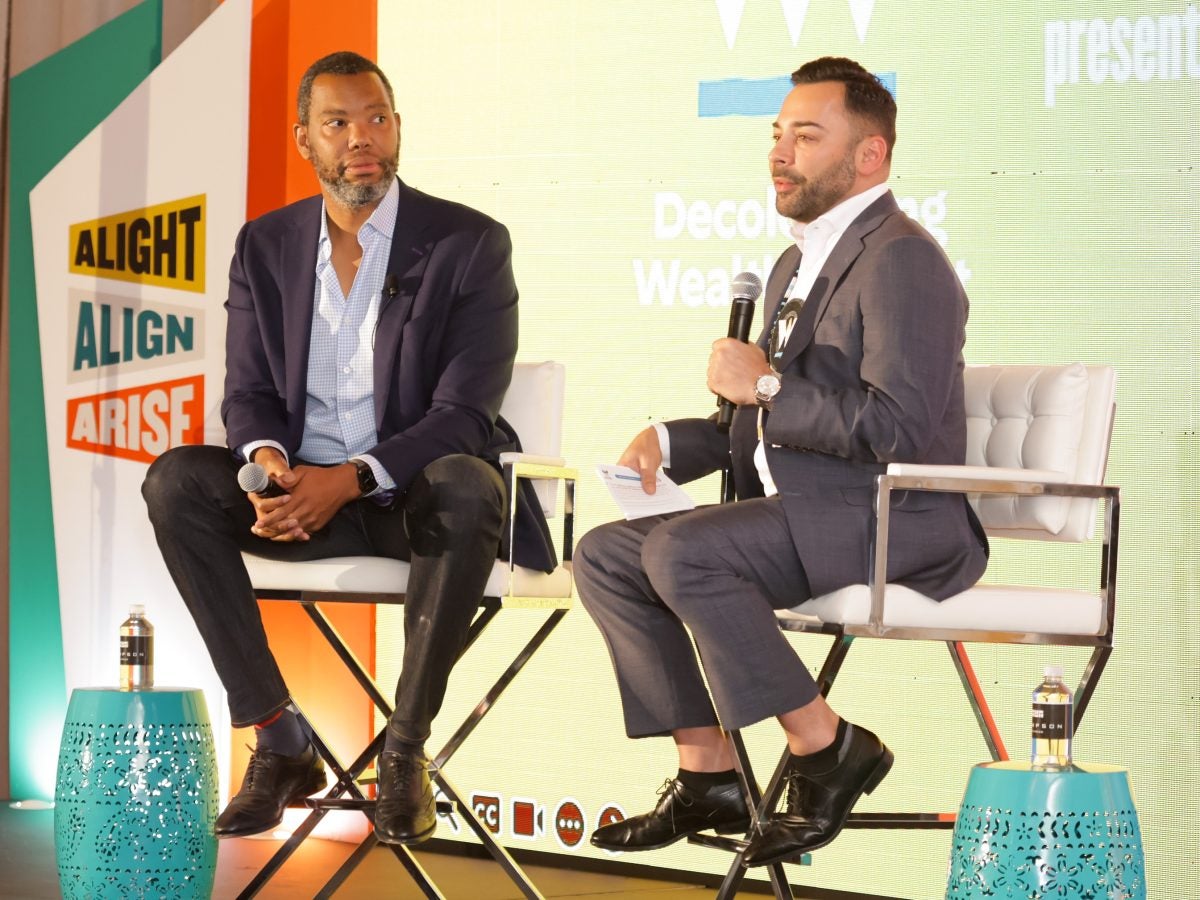
As the push for reparations continues to gain steam, the locomotive is headed to Atlanta. The Decolonizing Wealth Project is holding its “Alight Align Arise: Advancing the Movement for Repair” national conference on reparations this week.
Since location is key, Atlanta couldn’t be more perfect as the host for this unprecedented conference: the city’s county seat– Fulton County– is in the middle of a “years-long study into possible reparations for local residents – the first such county-led task force in the country.”
More than 200 key stakeholders, including celebrities, business leaders, civic and coalition leaders, and funders will come together for discussions around reparations efforts at both the local and national levels, the role of policy in advancing reparations, and Hollywood’s role in changing the narrative on reparations.
The conference– which began June 7 and ends Friday, June 9– aims to build upon the mission of the Decolonizing Wealth Project and strategize how the country can accelerate the racial healing process in our country through reconciliation, truth, and repair.
“This event will bring together the foremost influential voices across the reparations movement and the funding community to connect, collaborate, and strategize on how to advance racial healing. Our gathering marks a pivotal moment in our tireless pursuit to close the racial wealth gap and uplift Black wealth in America,” said Decolonizing Wealth Project Founder and CEO Edgar Villanueva
The speaker list is full of powerhouse names, such as “Nikole Hannah-Jones, who won a Pulitzer Prize for helming the groundbreaking ‘1619 Project’ in The New York Times in 2019, and Ta-Nehisi Coates, whose 2014 Atlantic article, ‘The Case for Reparations,’ jumpstarted a new round of thinking around financial reparations.”
Closing keynote speaker and Pulitzer Prize-winning reporter Nikole Hannah-Jones said, “Reparations are required to address the profound, lasting impacts of systemic racial injustices which have shaped our society. And our nation cannot heal without forums to speak honestly about the harm inflicted and the tools needed to build an equitable future.”
“I’m humbled and excited to be part of this upcoming conference bringing together activists, funders, creators, and policymakers to deepen each other’s understandings of the need for reparations and advance the conversation towards actionable solutions,” continued Hannah-Jones.
Speaking to The Atlanta Journal-Constitution, Villanueva said, “This conference is really a moment because folks for decades, or even longer, have been advocating for reparations for Black people in this country,” adding, “But after the murder of George Floyd, the movement and the demand for reparations has just grown exponentially.”
While the reparations movement has seemingly gained momentum since our country’s racial reckoning in 2020 in a post-George Floyd world, the asks are not new. Democrats have introduced Congressional bills and resolutions around reparations in every single legislative session since 1989. The National Coalition of Blacks for Reparations in America started in 1987 with the mission of “broadening the base of support for the long-standing reparations movement.”
Most recently, Congresswoman Cori Bush (D-MO) introduced a Reparations Now Resolution in May, making the case for why it is imperative for the federal government to “provide reparations to descendants of enslaved Black people and people of African descent.”
Bush’s resolution outlined three methodologies for the proposed reparations on top of calling for $14 trillion in compensation for Jim Crow and slavery.
Atlanta Congresswoman Nikema Williams supports both the resolution and reparations on a larger scale. “People who profited from the enslavement of 10 million people remain in positions of power, and in far too many instances, the families of enslaved people have received no reward,” she stated.
“America was intentional in disenfranchising Black communities continuing to do things like underfunding our schools, destroying our neighborhoods, and voter suppression,” said Williams.
